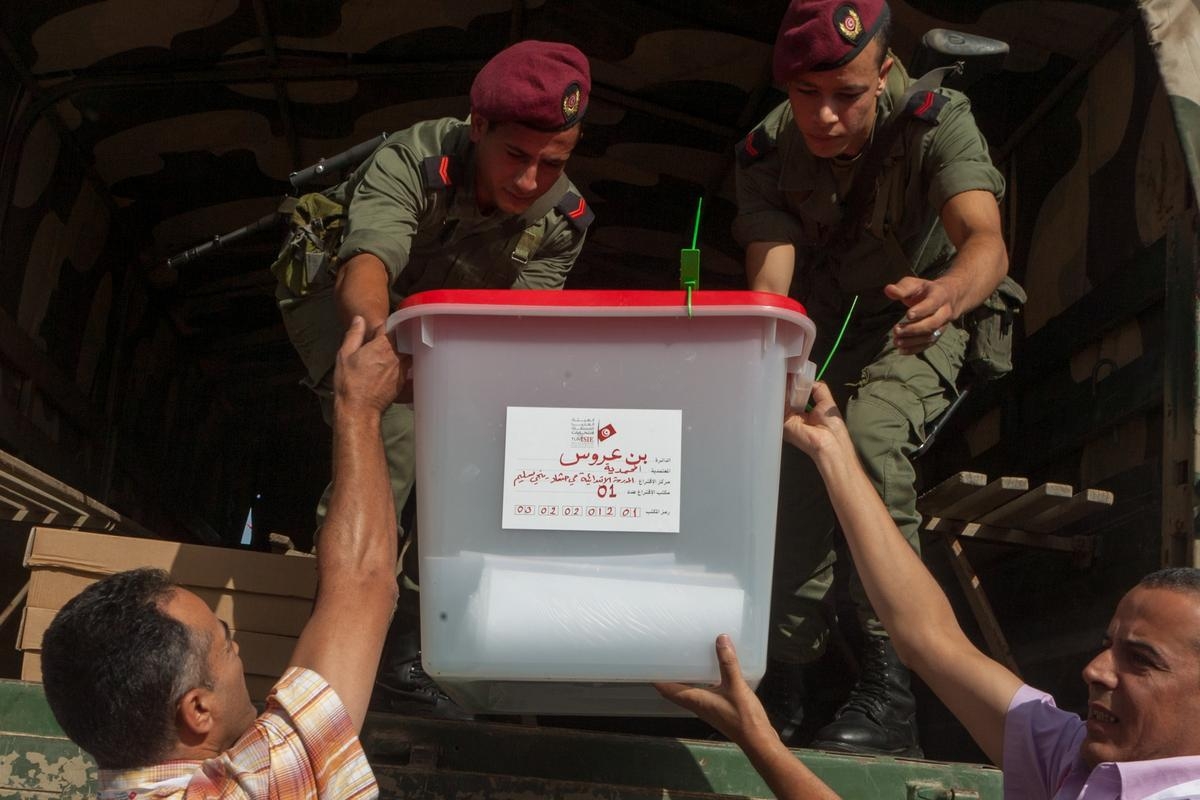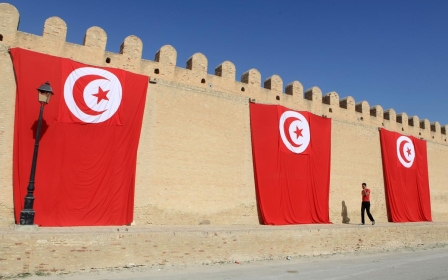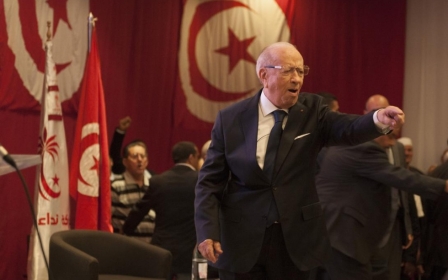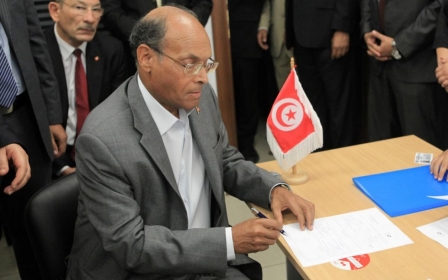Tunisia struggles with security ahead of elections

TUNIS - Ahead of Tunisia’s first democratic legislative elections, scheduled for October 26, the cafes and restaurants in the capital are filled with conversation about the country’s declining national security in regard to both armed attacks on security forces and policing of civil society.
Since a countrywide revolution ousted former US-backed president Zine El Abidine Ben Ali in early 2011, sparking a wave of revolutions across the Middle East and North Africa, Tunisia has struggled to maintain stability.
Ben Ali, who ruled Tunisia with an iron first for nearly a quarter century, fled to Saudi Arabia, leaving in his wake a security vacuum that post-revolutionary politicians have struggled to stabilise.
Armed attacks launched by militant Salafist groups have targeted state security forces over the past three-and-a-half years, including a wave of attacks in areas near the Algerian border this past summer that claimed the lives of dozens of Tunisian soldiers.
Monji Dridi, a 45-year-old teacher from Tunis, says she supports the state expanding its efforts to stamp out armed groups. “The government should fight the radical ideology and help teach people the proper religion so we can debate this new trend of Salafism,” she told Middle East Eye.
Najiba Zaghdoud, a 57-year-old mother of three from the northwestern town of Al-Kef, echoed Dridi’s sentiments when speaking to Middle East Eye by telephone.
“The government must try to improve the whole security system,” she said. “They also need to provide more training and more equipment, as well as recruit the number of people serving in the military forces and the National Guard.”
As Tunisia approaches the historic legislative elections, analysts point out that how politicians aim to fight against the spreading militancy will probably affect the outcome of the vote.
The situation may already have contributed to a sharp decrease in support for democracy, according to a poll whose results were published last week by Washington, DC-based Pew Research. “A majority of Tunisians (59%) now say that they should rely on a leader with a strong hand to solve their country’s problems,” the poll reports, adding that only 38 percent of Tunisians still supported democratic governance. The poll was based on face-to-face interviews conducted with 1,000 respondents from 19 April to 9 May, 2014.
Souhayel Hedfi, president of JID-Tunisie (Independent Young Democrats of Tunisia), a group that advocates for electoral participation and monitors the country’s democraticisation process, explained that security issues will play a central role in people’s decisions when they cast ballots this month.
“The security problems are of course very important,” Hedfi told Middle East Eye. “Especially after an attack, the biggest concern for a few weeks is security.”
In mid-July, an attack in Chaambi, a mountainous region hugging the country’s Algerian border, killed 15 Tunisian soldiers. A series of attacks followed in subsequent weeks, and state security forces responded by launching a widespread crackdown on Islamists across the country.
That same month, the United States announced its intention to sell Tunisia a dozen militarized Black Hawk helicopters, valued at an estimated $700 million.
“This was not the first time we have got arms from the United States,” Yassin Farjani, a member of the left-leaning Ettakatol party’s national council, told Middle East Eye, “but it is difficult for us because of our weak economy. Right now we are fighting terrorism and building a democracy at the same time.”
Farjani said that the primary security threats are concentrated along the Algerian border, where militants often move freely back and forth due to a patchy presence of state security forces.
“We also need to beef up our security presence on the border with Libya,” he said, adding that the influx of displaced Libyans fleeing violence in their homeland threatens to destabilize the already precarious political climate.
Tunisia needed to expand its security cooperation with the international community, Farjani said. “We need to open up more cooperation with other countries, not just the US. That’s why the government is planning on forging similar deals with Japan and other countries, as well. We also need more intelligence cooperation and mutual support with Algeria.”
In July, the Ministry of Interior announced the arrest of Seif Adeen Rais, a spokesperson for Ansar al-Sharia, a Salafist organisation founded in April 2011 by spiritual leader Sheikh Abu Ayyad al-Tunisi.
Ministry of Interior spokesman Ali Aroui told a press conference on Tuesday that 12 alleged terrorists had been arrested, including the head of Ansar al-Sharia’s media wing, according to local news website Tunisia Live.
Earlier this month, Aroui told Reuters that Tunisian authorities had arrested more than a dozen militants, including one Algerian national, who were preparing to launch attacks in Chaambi, where military forces have been increased since April.
Yet not everyone agrees with the government’s approach. Emir Sfaxi, 28, a computer programmer and widely read Tunis-based political blogger, argues that widespread police brutality could result in a backlash.
“People are sick of seeing new cases of police brutality every day,” he told Middle East Eye. “It makes Tunisians trust the state and its institutions less. Many people feel we are losing gains we made after the revolution when they see things like police brutality.”
On 13 October, Human Rights Watch issued a press release calling for a “thorough and impartial investigation” into the death of 32-year-old Mohammad Ali Snoussi, which has prompted accusations of torture. Snoussi had been arrested late last month. The press release said the Interior Ministry published a statement on its Facebook page saying that police had arrested Snoussi for offenses that included assaulting police officers and consumption and trafficking of drugs.
“Tunisia needs to do much more to hold police who commit abuses accountable if its claims that it is committed to stamping out torture are to remain credible,” Eric Goldstein, Middle East and North Africa director of HRW, said in the statement.
Although the public discourse continues to heat up regarding state security measures and the allegations of police brutality that accompany them, JID Tunisie’s Souhayel Hedfi warned that the most important electoral issue remains the recovery of the country’s struggling economy.
“Security’s importance rises and decreases depending on the conditions and the events, but the economy remains the primary issue for all Tunisians,” Hedfi said. “And of course, if the economy improves, then security and stability will follow.”
Middle East Eye propose une couverture et une analyse indépendantes et incomparables du Moyen-Orient, de l’Afrique du Nord et d’autres régions du monde. Pour en savoir plus sur la reprise de ce contenu et les frais qui s’appliquent, veuillez remplir ce formulaire [en anglais]. Pour en savoir plus sur MEE, cliquez ici [en anglais].




